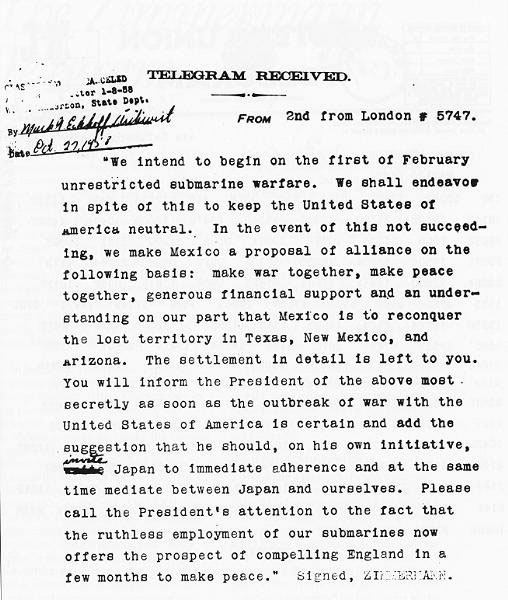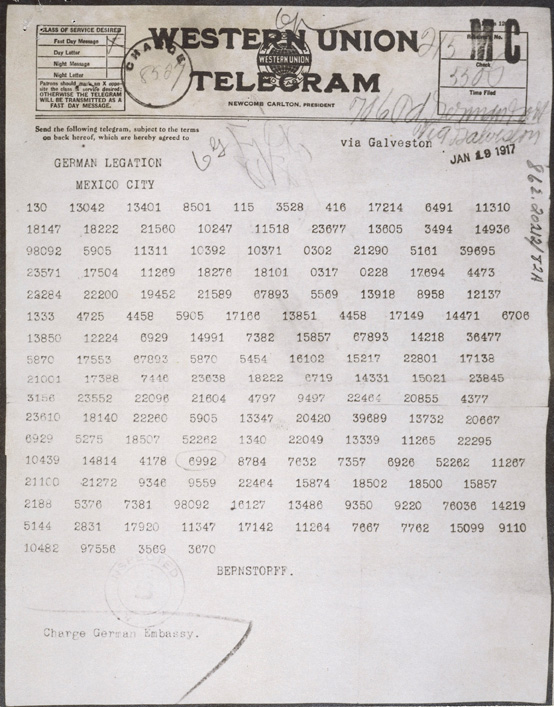Zimmermann telegram was an intercepted German message that helped draw the United States into World War I (1914-1918). The message—often called the Zimmermann note—was an attempt by Germany to persuade Mexico to go to war against the United States.

After the outbreak of war in Europe in August 1914, the United States remained officially neutral. But in January 1917, Germany expanded its assault on British shipping by authorizing unrestricted submarine attacks on any ships—including those from neutral nations—headed for the United Kingdom. Although Germany knew this would anger the United States, it hoped that cutting off supplies to the United Kingdom would force the British to make peace before the United States could prepare for war. On January 31, Germany announced that it would begin unrestricted submarine attacks the next day. The United States broke off diplomatic relations with Germany on February 3.
Meanwhile, in mid-January, British agents had intercepted and begun to decode a telegram from German Foreign Minister Arthur Zimmermann to the German ambassador to Mexico. The telegram stated Germany’s intentions to expand submarine attacks, as well as the hope that the United States would remain neutral. However, should the United States enter World War I, Germany offered U.S. territory in Arizona, New Mexico, and Texas to Mexico if Mexico would enter the war on the German side. The British relayed the decoded message to the U.S. government in late February, and the message was released to the press on March 1. The publication of the Zimmermann telegram enraged the American public, which was already angry about the sinking of U.S. ships by German submarines.

On April 6, 1917, the U.S. Congress declared war on Germany. The addition of the United States on the side of the Entente—France, the United Kingdom, and Russia—helped bring about the Allied victory in World War I.
See also World War I.
